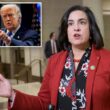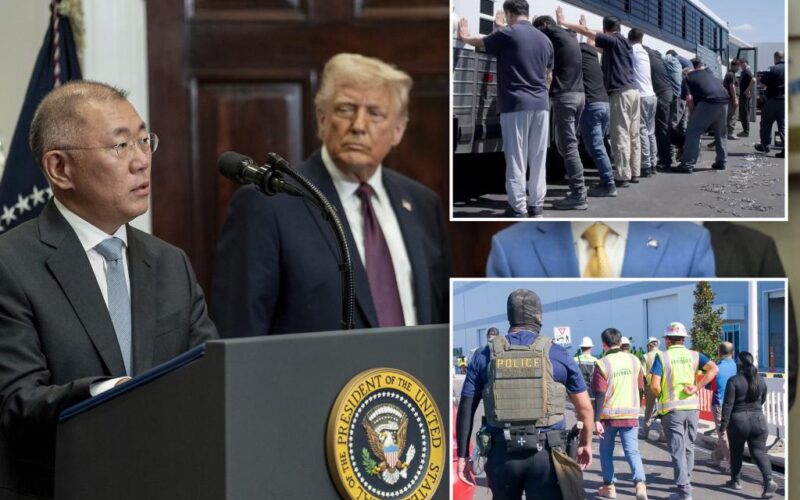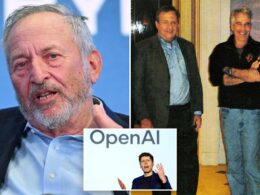Last month’s stunning immigration raid on a Hyundai plant in Georgia came despite a months-long charm offensive the automaker had launched to win over President Trump in the age of tariffs and tight border security, according to a new report.
Hyundai Motor Group donated $1 million to Trump’s inauguration and pledged a whopping $26 billion in investment in the US, The Wall Street Journal reported — only for the feds to slam the company with tariffs, and then the raid, anyway.
With more than 300 South Korean professionals shackled in the Sept. 4 immigration sweep at Hyundai’s “Metaplant” in Savannah, Ga., the raid was the largest single-site enforcement action in Homeland Security Investigations’ history.
Prior to that, Hyundai pledged about $21 billion in investments in the US — later upping the figure by $5 billion — in an unsuccessful bid to stave off auto tariffs that went into effect in April.
The raid triggered a crisis in South Korea, where the government condemned the sweep as an “unjust infringement.” It rushed diplomats to Washington to secure the release of detained Korean workers and demanded protections for its citizens abroad.
The sweep stemmed from a search warrant that initially targeted four Hispanic workers, the Journal reported.
The operation widened into a mass roundup that spotlighted the $7.6 billion plant’s heavy reliance on Korean technicians installing complex EV-battery equipment.
Authorities detained about 475 workers total and bused many to an Immigration and Customs Enforcement detention center in Folkston, Ga.
The raid sparked fear among Korean communities in the US, angered Seoul’s business leaders and cast a chill over future Korean investment in America.
Homeland Security Investigations’ top official in Georgia defended the sweep.
“We welcome all companies who want to invest in the US, and if they need to bring workers in for building or other projects, that’s fine — but they need to do it the legal way,” said Special Agent in Charge Steven N. Schrank.
The back-to-back blows — tariffs and the raid — undercut Hyundai Executive Chair Euisun Chung’s bid to stay in Washington’s good graces, the Journal noted.
Trump in March hailed Hyundai’s big investment promises, saying on social media they proved his tariffs “very strongly work.”
Days later, the 25% duty on global auto imports landed, with no carve-out for Hyundai. Still, in April, the company said it would shift the manufacture of a popular SUV from Mexico to Alabama and source more parts from the US.
Chung kept the efforts up, reportedly increasing the size of the investment pledge hours after he and South Korea’s President Lee Jae Myung visited the White House in August.
Within days, a court signed the search warrant for the Georgia operation.
Many of the detained South Koreans had entered the US on short-term business visas or under the visa-waiver program, according to Seoul officials.
Even as Trump initially blasted the Georgia site as employing “a lot of illegal aliens,” he soon pivoted to say foreign experts would be welcome — temporarily — to train US workers on complex manufacturing lines.
The Post has sought comment from the White House, Hyundai and the South Korean government.








